Pipes have been employed for generations but the pipe mill has revolutionized their production and application. Now, thanks to cutting-edge pipe mills, the range of available pipes is impressive. These mills can manufactureElectric Resistance Welded (ERW) and Seamless pipes in sizes and materials to suit any project.
Producing an Electric Resistance Welded (ERW) pipe involves transforming a hot rolled coil into a cylindrical shape and then welding its circumference together. With sizes ranging from 1/8 to 24 inches in diameter, they offer a cost-effective solution for many applications, including irrigation systems, water delivery, oil and gas conveyance, and structuring purposes. Additionally, heat treatments can be applied to strengthen the weld seam and make it more resistant to corrosion.
Metal billets that are circular in shape are pushed with force through a piercing mill where they are transformed into hollow tubes. This manufacturing process is known as seamless pipes and are more costly than ERW pipes. These pipes come in an array of sizes comprising diameters between 1/8 and 48 inches, lending themselves to a variety of purposes such as oil and gas exploitation, petrochemical and chemical processing, and structural roles. Additionally, seamless pipes possess a superior resistance to corrosion and enhanced strength compared to ERW pipes.
In a pipe mill, the process of creating ERW and Seamless pipes requires attention to detail. The hot rolled coil is first re-shaped to form a cylinder by cutting it into lengthy strips. It then gets fashioned into its appropriate type – either welded along its length (ERW) or forced through a piercing method (seamless). To attain durability and resist corrosion, the pipe undergoes heat treatment. Finally, it gets cut and inspected for excellence, before being brought to its predetermined size.
For numerous projects, pipe mills craft pipes of various materials and sizes that can be adapted to many applications. The cost-effective ERW pipes are utilized for irrigation systems, water distribution, transferring oil and gas, as well as structural requirements. Durable and rust-resistant seamless pipes may be more pricey, yet they provide exceptional resilience. Manufactured in a pipe mill, both ERW and Seamless pipes are fabricated through various production procedures.
To address the world’s modern demands for pipes in a variety of uses, pipe mills have evolved, becoming highly advanced facilities. As such, they are capable of producing a range of pipe types and sizes utilizing diverse material selections. This development has been integral in revolutionizing the way pipes are created and employed. Thus, the output of ERW and Seamless pipes from the pipe mill is heavily relied on to meet current needs.
The pipe industry continues to expand, with new materials and technology being integrated into the production of pipes. This is performed by two main mills- Pipe Mill ERW (Electric Resistance Welded) and Pipe Mill Seamless. Each mill has its own techniques and advantages as well as drawbacks that make them unique.
Electric Resistance Welding (ERW) pipe mills make use of electrical arcs between two electrodes to melt the edges of the pipes during fabrication, creating a sturdy and reliable bond. These large-diameter pipes are commonly used for underground utilities like water delivery, sewage disposal, oil/gas distribution and more. In other words, Pipe Mill ERW is an effective way to create safe piping for essential infrastructure.
Comparatively inexpensive to manufacture, Pipe Mill ERW offers an advantageous cost savings against other pipe systems as it requires only electricity to operate. Possessing a high strength-to-weight ratio, these pipes make a strong and economical choice for certain applications. On the downside, Pipe Mill ERW pipes are more susceptible to welding defects and have a slightly higher carbon content than the alternatives. Furthermore, when exposed to fluctuating extreme temperatures, Pipe Mill ERW will react more strongly by expanding and contracting due to its higher thermal expansion coefficient.
A Pipe Mill Seamless is a process by which pipes are formed by feeding a continuous roll of material through a tube that shapes it accordingly. This process, known as extrusion, produces a broad spectrum of pipes with varying sizes and shapes. The durability and strength of this type of tubing make it ideal for applications requiring high pressure and temperature resistance, making it a prevalent material in the oil and gas sector which operates in highly corrosive environments with extreme temperatures.
Pipe Mill Seamless pipes boast a number of advantages, primarily when it comes to shape, size, and surface finishes. By constructed without seams, they create a pipe with an unmarred exterior and interior, along with uniformity in form and dimensions. This makes them particularly suitable for applications which require the pipe to endure extreme temperatures and pressure. Moreover, their exceptional wear resistance and lower thermal expansion coefficient help ward off corrosion issues.
Although Pipe Mill Seamless can require more financial investments than Electric Resistance Welded pipes due to the additional equipment and labor required, it is equipped with greater precision when fabricating. This further complexity demands a higher level of skill from technicians in order to complete.
Ultimately, when considering pipe mill options for a job in the pipe industry, two important archetypes to consider are ERW and Seamless Pipe Mills. Both supply assorted pros and cons; thus, careful examination of all parameters must ensue before deciding which would be the most beneficial.
Post time: 2023-08-22
Related Product
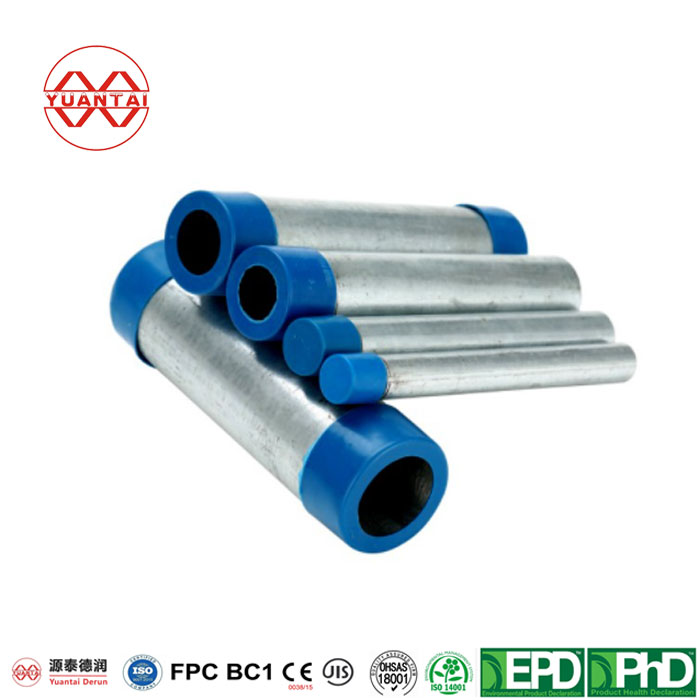
Hot Dip Galvanized Round Steel Pipe
Yuantai Derun Steel Pipe Manufacturing Group produces hot-dip galvanized round steel pipes, which are sold directly by manufacturers, support customization, and have guaranteed qua […]
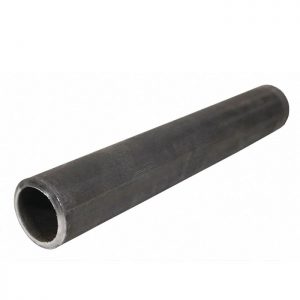
Round Seamless Steel Pipe
Seamless steel pipe is a steel pipe formed by piercing the whole round steel, and there is no weld on the surface, which is called seamless steel pipe. According to the production […]
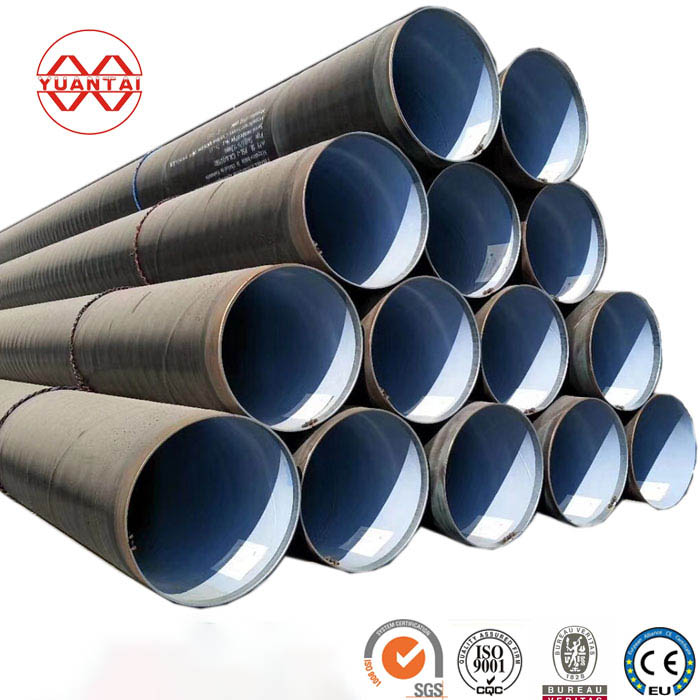
Spiral Welded Steel Pipe
Spiral welded steel pipe introduction Spiral welded steel pipe refers to the steel pipe with joints on the surface, which is welded after the steel strip or steel plate is bent and […]
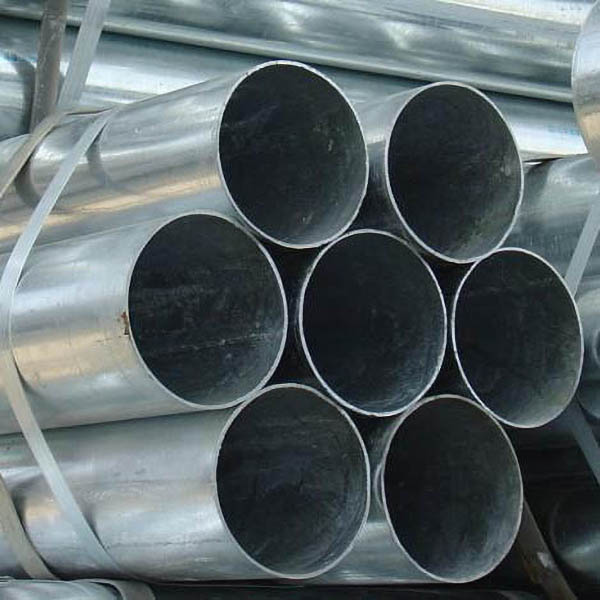
GI Circular Steel Pipe
Galvanized round steel pipe Generally, there are two major categories: pre galvanized round steel pipes and hot-dip galvanized round steel pipes. Hot dip galvanized pipe is to make […]
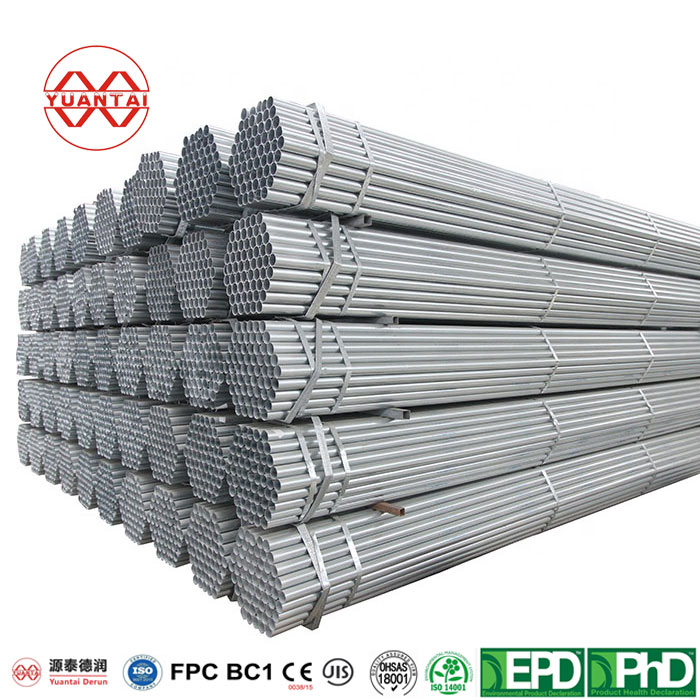
UL797 American Standard Certified EMT Threading Pipe EMT Pipe
OD(outer diameter): 22mm-112mm Thickness: 0.75- 3 mm Place of Origin: Tianjin, China Application: Structural type or fluid transportation Certification:CE,LEED,BV,PHD&EPD,DNV,B […]
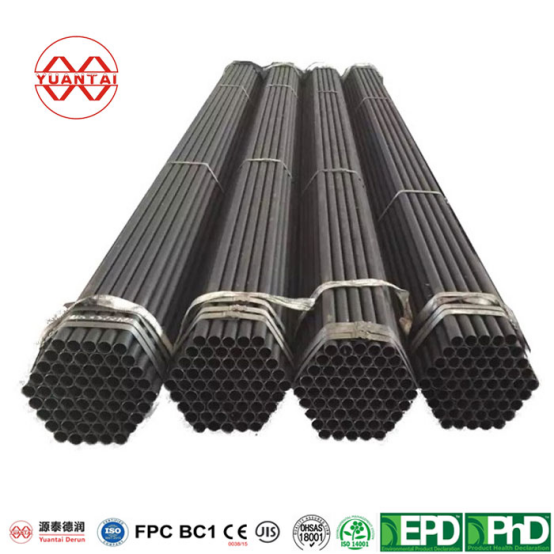
ERW Round Steel Pipe
Standard:Hollow section:ASTM A500/501,EN10219/10210, JIS G3466,GB/T6728/T3094/3091,CSA G40.20/G40.21 Section Shape: round OD(outer meter): 10.3mm-609mm Application: Structural type […]
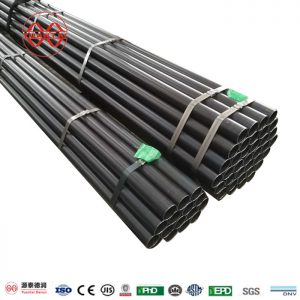
Round Welded Pipe
Since the 1930s, with the rapid development of continuous rolling production of high quality strip steel and the progress of welding and inspection technology, the quality of weld […]
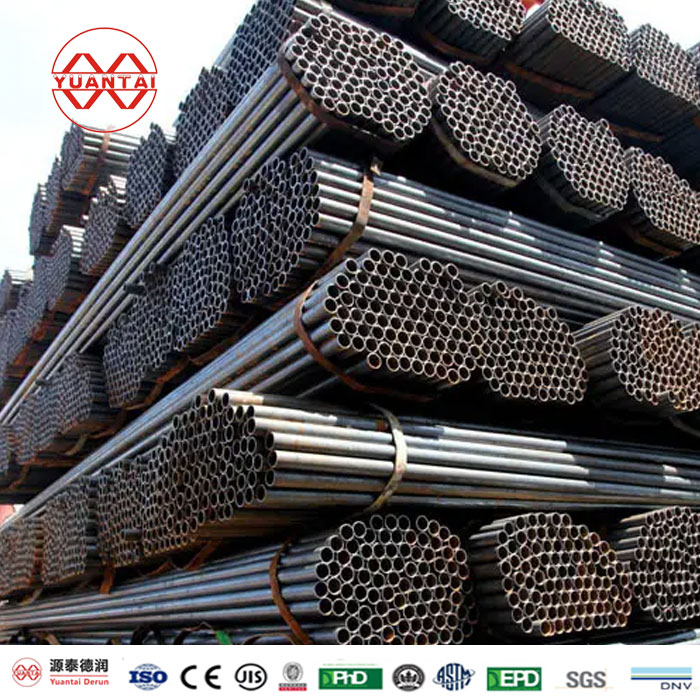
Scaffold Steel Pipe
Introduction to scaffold steel pipe Scaffold steel pipes are generally called scaffold pipes, which is a special term used by people in building or construction. Scaffold steel pip […]
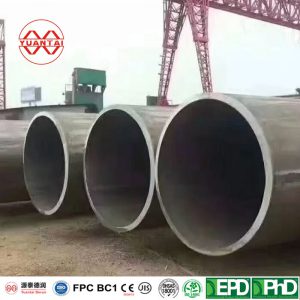
LSAW Steel Pipe(Longitudinally Submerged Arc Welding Tube)
Lsaw Steel Pipe(Longitudinally Submerged Arc Welding Tube) JCOE is a pipe making technology for the production of large diameter thick wall steel pipes. It mainly adopts the produc […]